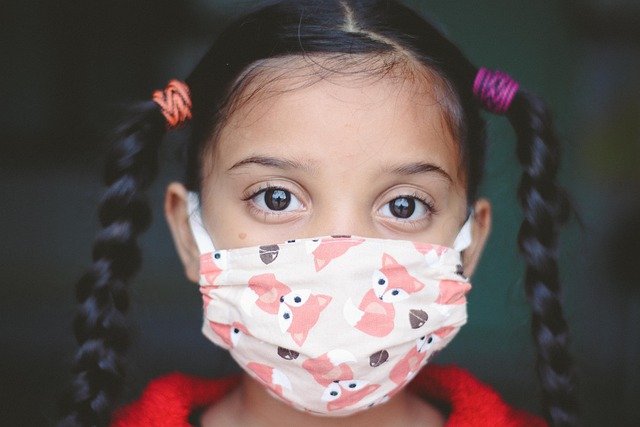Ever since the emergence of the pandemic, public transportation has been at the receiving end of the consequences. Now, under the attack of the second wave of the Covid-19 virus, people are reluctant to take buses, trains, or even cabs. Under these circumstances, it is natural to doubt, is it safe to travel by bus?
The answer to the questions is, yes, it is safe to travel by bus. Both the public and private bus operators are doing their best to clean, sanitise and maintain the buses to keep them ready for the public. Efforts are taken in all possible ways to contain the spreading and make public transportation safe for one and all.
What is the safest way to travel?
These days, all modes of public transportation are maintained well to facilitate safe travel for the passengers. Among the flights, trains, and buses, the safest way to travel is to take the buses. Buses offer comfortable journeys as they are available with various amenities of varying levels, cheaper ticket rates when compared to the flights and most importantly, helps you avoid long queues and the crowd that we often see at the train stations and airports.
It is not just in India, the buses are considered the safest transport in the world. They are widely available and can help you reach many of the remote areas which the other modes of transportation cannot reach. This is one major factor that has influenced the passengers in India to choose a bus over several other options for travel.

The covid situation in India
The second wave of Covid-19 has hit the country too hard. The daily rise in the positive cases and the death rate seems almost surreal. The situation is getting more dangerous day by day, and it calls for some extreme measures to contain the spread.
Each passing day is seeing a record-breaking hike in the number of affected patients. Under this scenario, the bus operators across the country and the government have taken several measures to sanitise the vehicles and reduce passenger exposure.
Several state governments have taken measures to control the entry of inter-state buses. States such as Madhya Pradesh, Odisha, etc., have suspended the inter-state buses. While some states have allowed interstate buses with conditions such as compulsory RT-PCR negative certificate from the passengers to allow them entry into the state.
At the same time, the RTC buses of the various states are continuing with their services with better facilities such as cleaner and comfortable seats, digital tickets and contact-less boarding, online bus ticket booking services, etc.
These days most of the RTC tickets are available online, and the buses are available from standard buses to luxurious. RTCs are also altering their schedule to accommodate more passengers.
Measures were taken by private bus operators
Private bus operators were badly hit during the lockdown that they have managed to get back on track in the past few months. They introduced new measures into their buses to keep the buses safe for travel and to get the public to use their services.
Nowadays, you can see that almost all the private bus operators are allowing online ticket booking. The e-ticket is valid across all buses to show up at the time of boarding. They now give more importance to passenger safety than everything else.
These bus operators have stopped serving a few factors in the buses such as the blankets, pillows, water bottles etc. These items are no longer available inside the buses stating safety issues. Hand sanitisers are also a common sight on every bus, which was unheard of until a year ago.
redBus initiative for the passenger safety
redBus has introduced the Safety+ feature to ensure safety measures by all the buses associated with them. Under this policy, all buses that are associated with redBus will have to abide by the guidelines stated under this feature.
The Safety+ feature urges the bus operators to regularly clean and sanitise the vehicles after every trip and at the end of the day. The availability of hand sanitisers is now compulsory in all the buses for the passengers.
Wearing face masks for both the staff and the passengers is compulsory while waiting, boarding, and travelling. Passengers will not be allowed inside the bus if they do not have a face mask.
The staff and drivers of all the buses will need to undergo temperature checking and health checkups periodically. Even the passengers will have thermal checking at the time of boarding.
As a safety feature, provision for the blankets and pillows are currently suspended. Now, the passengers must carry blankets or pillows if they need them while travelling. Moreover, the bus staff is instructed not to allow entry to those passengers who have any kind of symptoms.
Safety of travelling by bus
As you can see, measures are taken by all departments concerned, to ensure the safety of the passengers travelling by bus. When the guidelines are strictly followed, travelling by bus is as safe as hiring a cab and travelling alone. Since not everyone can afford such luxury, the next best option is to choose the buses, which are widely available in the country and to all parts as well.
The buses are always a safer option among the public transport system. They are available in plenty, and their reachability is more, in comparison. The overall safety of travelling by bus is a collective effort from the bus operators and the passengers.
The wrap-up
When both the government and the bus operators are trying their best for the safety of the public, it is up to the public to play their part. Sticking to all the rules and guidelines is significant. The use of hand sanitisers and face masks, as well as showing the prudence to avoid travel in case of even mild symptoms of any kind, will be enough to make public transportation safe for all.








